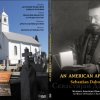The Belgrade-based orchestra brought two programmes on the U.S tour and Cleveland got Khachaturian’s Masquerade and The Legend of Ohrid written by Stevan Hristić, a founder and the first Chief Conductor of the orchestra. Sibelius’ Symphony No. 2 is common to both programmes. The special performance, which the audience rewarded with ecstatic applause, was augmented by the acoustics of this dazzling concert hall, for which it is well-known around the world.
.Credits for the fact that the Belgrade Philharmonic included Cleveland in its U.S. tour go to Alex Machaskee, the Honorary Consul of the Republic of Serbia.
“A few years ago when I met Ivan Tasovac, who was the Director of the Belgrade Philharmonic at the time, I told him that the orchestra had to come to Cleveland and visit Severance Hall, one of the world’s most wonderful concert venues. The Belgrade Philharmonic is, indeed, a marvellous ensemble with 96 exquisite musicians. I fully understand why the European reviews are so positive – it is finally the time for them to show America what they are made of. Tonight’s special treat was Stevan Hristić’s The Legend of Ohrid, since the audience does not often have a chance to hear this suite in its entirety.”
“I am delighted to be here with the Belgrade Philharmonic. Since this orchestra is so exceptional, it was a unique opportunity for the Ohio National Guard’s musicians to share the stage with them. This is a significant event not only for the city of Cleveland, but also for Ohio, since it will contribute to the development of cooperation between the Ohio National Guard and Serbia”, said Major General Deborah Ashenhurst.
The magnificent Severance Hall was built in the 1930s with great support from philanthropists, despite the Great Depression that devastated America at the time. The acoustics of the Cleveland Symphony Orchestra’s home is certainly an asset which the Belgrade Philharmonic aspires to have in the future.
Source: Belgrade Philharmonic Orchestra





